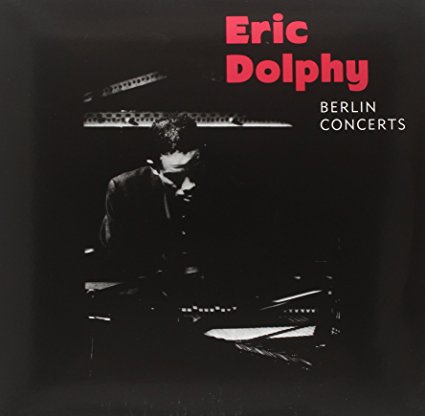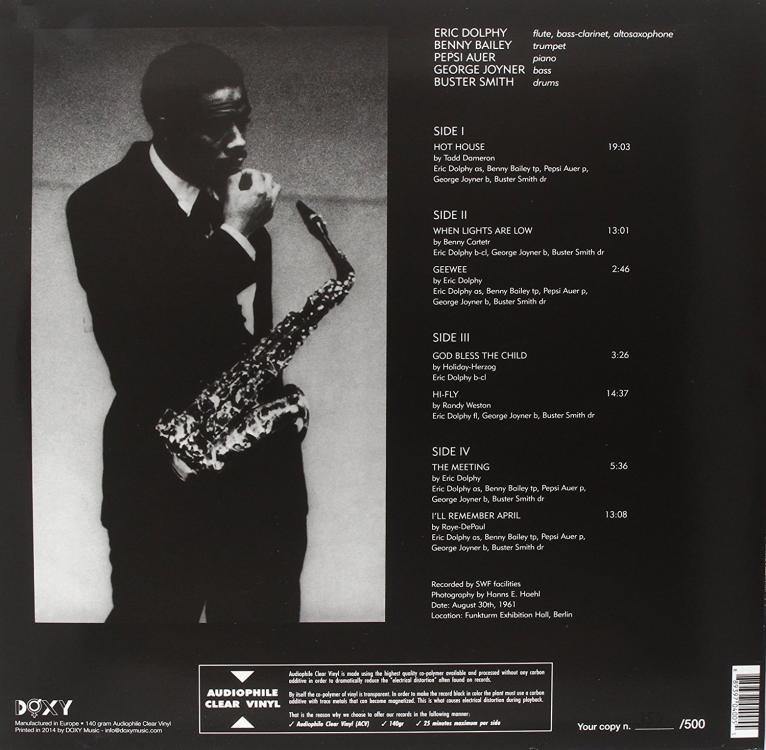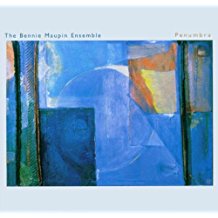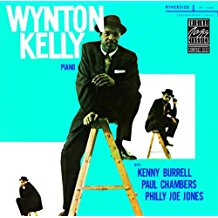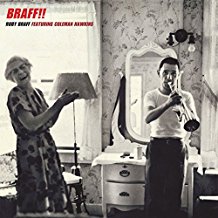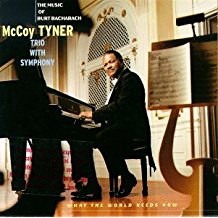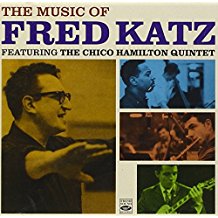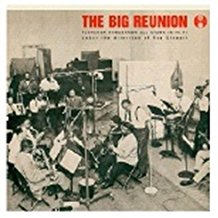-
Posts
13,205 -
Joined
-
Last visited
-
Donations
0.00 USD
Content Type
Profiles
Forums
Events
Blogs
Everything posted by Larry Kart
-

Berklee in the News (and it ain't pretty)
Larry Kart replied to clifford_thornton's topic in Miscellaneous Music
A post by a female 41-year-old friend of my son: Reading about Louis CK (who I’ve admittedly adored,) Moore, and Spacey. Gah. From my understanding, most of the people I know manage not to masturbate in front of their co-workers. Most, as far as I know, of my thirty and forty-something peers somehow get through adulthood without trying to date, grope, drug, or throw their bodies on top of teenagers. 99% of my managers who were into women (and I have had more jobs than you) have not harassed me, fondled me, or tried to convince me to massage them. None have gotten off into plants in front of me. This is not magic. It is not because of a lack of dark and quiet spaces, levels of sobriety, what was worn, or power differentials. It’s because the majority of adults have a modicum of self control and understand consent. So can we get past the “horny, can’t help myself” “boys will be boys” narrative? We’re all sexual beings. We all are pulsating with desire. And we all f*** up or misread situations from time-to-time. But when things happen repeatedly. When using power for sexual exploits happens repeatedly, they know what they’re doing (see current President’s explanation of how his power allowed him to kiss, grope and grab the pussy of strangers for reference.) It’s rooted in a jacked up sense entitlement that justifies a lack of control. And it gives desire a bad name. That is not ok. -
Lovely relaxed feel to much of this album.
-
I'm a great admirer of Tucker. BTW, I once heard that that Tucker was banished for life from RVG's studio after he put his hands on one of Rudy's mics there, this in the course of a recording session.
-
Back of "Sedimental You," first album above. Back of "Jigsaw," second album above. What a joy to listen to Dolphy again.
-
-

Return Of The Film Corner Thread
Larry Kart replied to JSngry's topic in Miscellaneous - Non-Political
My son dismissed the plot as, among other things, a retread Star Wars -style "Who's your real father?" story. As a friend of mine, who liked the film a lot, explained, 'The point isn't who KD's father is, but whether he's a "manufactured" replicant or might be a "miracle" birth.' -

Return Of The Film Corner Thread
Larry Kart replied to JSngry's topic in Miscellaneous - Non-Political
Liked it a lot; my 40-year-old son, a steeped in Philip K. Dick person, hated it. He said that its plot was silly and lazy, that film was devoid of good ideas and deeply misogynistic, in part because one of the nastier menacing villains (the character "Luv") is a woman. I asked him whether Shakespeare was misogynistic when he created Lady Macbeth. This was not appreciated. Never argue with your children unless you absolutely have to. -

Obscure Albums You've Heard and Think Everyone Else Should
Larry Kart replied to Dan Gould's topic in Recommendations
Just picked this up (Bennie Maupin Ensemble, "Penumbra" -- Cryptogramophone) and listened to it last night for the first time. IMO the Maupin of 2006 was a much superior player to the Maupin of "Bitches Brew," especially on bass clarinet. Terrific recording too (Nolan Shaheed at No Sound Studio, Pasadena) and fine work from bassist Darek Oleszkiewicz, a new name to me. -
What an impact he had.
-
Listening tonight to Art Taylor's ""Wailin' at the Village Vanguard," I wondered whether any knew what the talented Williams was up to. I have a nice 1992 album of his "Spirit Willie," and there are two others under his own name, but the most recent is from 2007.
-
Just asking, as a former Down beat assistant editor (1969-70) who nonetheless has little residual fondness for the magazine, but how can you blame DB for either poll? Yes, it selects those who vote in the Critics Poll (doing so on the basis of who's out there and writing,) but it certainly doesn't know how those people are going to vote nor, of course, does it try to influence how they vote and couldn't do so even if it tried. Now if you're going to say that DB is responsible for shaping the overall climate of jazz and thus shaping how the critics vote, I'd say "nah" or "meh."
-
Never heard this 1958 album before for some damn reason. It is excellent, despite some rather muffled sound even by Riverside standards (engineer was Aaron Nathanson [who he?] at Metropolitan Sound [where dat?] -- a treble boost probably would help. Four tracks with Kelly, Kenny Burrell, Paul Chambers, and Philly Joe. four tracks minus Philly Joe. Some very serious playing here by all hands, maybe the most intense focused Burrell I've ever heard, clearly stimulated by a pianist who was born to accompany him.
-

Obscure Albums You've Heard and Think Everyone Else Should
Larry Kart replied to Dan Gould's topic in Recommendations
I'd never heard it. Ordered it. Thanks. -

Please Help Me Go Deeper Into The Collection
Larry Kart replied to Dan Gould's topic in Miscellaneous Music
One of my favorite Braff albums -- Three different groups, each excellent. The one with Coleman Hawkins and Lawrence Brown! That's Ruby's mother on the cover. Baritone Saxophone – Ernie Caceres (tracks: A2, A5, B1, B6) Bass – Eddie Jones (tracks: A2, A3, A5 to B2, B4 to B1, B6) Drums – Buzzy Drootin Guitar – Freddie Green (tracks: A2, A3, A5 to B2, B4 to B1, B6), Steve Jordan (3) (tracks: A1, A4, B3, B5) Piano – Dave McKenna (tracks: A1, A4, B3, B5), Nat Pierce (tracks: A2, A3, A5 to B2, B4 to B1, B6) Tenor Saxophone – Coleman Hawkins (tracks: A2, A5, B1, B6) Trombone – Lawrence Brown (tracks: A2, A5, B1, B6) Trumpet – Ruby Braff Vibraphone – Don Elliott (tracks: A2, A3, A5 to B2, B4 to B1, B6) -

Obscure Albums You've Heard and Think Everyone Else Should
Larry Kart replied to Dan Gould's topic in Recommendations
-
As we know, they're often the worst, if only because they have access. But Denny? I don't think so.
-
Can't justify this by and large on aesthetic grounds, but I've been listening to this a good deal lately because it's such a good sound-system test record -- wide stereo spread, vivid piano sound (the whole rhythm section is vividly captured), a good many strings, solo winds, etc. Further -- and feel free to shoot me -- there are times when McCoy's evident involvement in this material kind of gets to me. John Clayton's writing is more than a bit ripe at times, but that kind of fits the nature of the project. Don't worry, I'll be back.
-
I've known Denny fairly well since high school, albeit off and on over the years, and find it highly improbable that he ever used heroin. Just doesn't fit his personality or lifestyle.
-
I was at Down Beat when that Tristano letter praising Diana Ross came in.
-

Obscure Albums You've Heard and Think Everyone Else Should
Larry Kart replied to Dan Gould's topic in Recommendations
That was French horn player John Graas, whom Chico had planned to use, who left L.A. with the Liberace show. Katz had been working with Chico on piano and said to him "Before I hang up my gloves I'd like to play a little jazz on the cello." Voila! -

Obscure Albums You've Heard and Think Everyone Else Should
Larry Kart replied to Dan Gould's topic in Recommendations
Just arrived today. Katz's modern classical chops as a writer are considerable, and as he says in the notes, he isn't interested in "bridging the gap" between the two musics but in writing the music that he feels he needs to write -- this by contrast with a fair number of West Coast guys in the '50s who kept tossing in quasi-fugal episodes in the name of classiness, or so it seemed. There's none of that in Katz. He was a serious cat, Katz was -- not a heavyweight but certainly no tiddly-widdler; his music had its own flavor and asks for no "'Hey, I went to Juilliard' special credit." And on his various features on this album, Paul Horn acquits himself quite well. P.S. Katz did not go to Juilliard, just an expression. -
As I've said before so often that I'm boring myself, my sense is 1) that Wynton as a player initially was something of an imp -- technically dazzling and with a pocket full of firecrackers, a la latter-day Charlie Shavers perhaps, but then 2) either on his own hook or through the influence of Crouch and others, he re-conceived himself as the Noble Young Prince of the Realm, and began to try to play accordingly -- as though every solo were a lecture-demonstration of how to be solemn , noble, heroic and all grown up. (Was this all some sort of jazz takeoff on "The Lion King"?) But faux anything, especially faux nobility, is not only fairly easy to detect in jazz but also fairly hard to take. P.S. I didn't mean "latter-day Charlie Shavers" but all Charlie Shavers. BTW, I once played, IIRC circa 1979 or '80, the title track of that great Swingville Shavers-Coleman Hawkins album "Hawk Eye," for the young Wynton in a Blindfold Test-manner, not trying to trick or challenge him but merely to get his reaction to some terrific trumpet playing that I thought he might feel was akin to his own at the time. Unfortunately, he did feel like I was administering some kind of "test" of his jazz knowledge and thus he was guarded and noncommittal.| Those exchanges between Shavers and Hawkins!
-
A 2004 take on "Blood on the Fields" from my book: "Almost twenty years have passed, and it now seems clear that despite the prominence that the engines of cultural politics and publicity have given to Wynton Marsalis, his music (especially his latter-day orchestral work) is a non-issue aesthetically and has been for some time. Such Marsalis pastiches as the oratorio Blood on the Fields (1997), the suite In This House, On This Morning (1993) and the ballets Citi Movement (1991), Jazz (1993) and Jump Start (1995) seem to come from a strange alternate universe --one in which some of the surface gestures of Duke Ellington (Marsalis’s chief model) have been filtered through the toylike sensibility of Raymond Scott. "Marsalis remains a skilled instrumentalist, but, despite his early promise, he has not become a strikingly individual soloist. As for his orchestral works, their relative poverty of invention becomes clear when they are placed alongside the likes of George Russell’s Chromatic Universe and Living Time, Oliver Nelson’s Afro-American Sketches, Bill Holman’s Further Adventures, Muhal Richard Abrams’s The Hearinga Suite, Bob Brookmeyer’s Celebration, John Carter’s Roots and Folklore, and, of course, the more successful orchestral works of Ellington himself. A brief comparison between one of the major vocal episodes in the Pulitzer Prize-winning Blood on the Fields, “Will the Sun Come Out?” (sung by Cassandra Wilson), and the opening vocal movement of Ellington’s otherwise instrumental Liberian Suite (1947), “I Like the Sunrise” (sung by Al Hibbler), might be revealing. The works are comparable in theme--the subject of Blood on the Fields is slavery in America, while Liberian Suite was commissioned by the West African republic of Liberia, which was founded by freed American slaves in 1847--and both “Will the Sun Come Out?” (which lasts nine minutes) and “I Like the Sunrise” (half as long) are meditative semi-laments in which hope, pain, frustration, and doubt are meant to joust with each other. The melody of “I Like the Sunrise” has an equivocal, sinuous grace (climbing in pitch toward a point of harmonic release it cannot reach, it expressively stalls out on the words “raised up high, far out of sight”), while the key turn in the lyric--“I like the sunrise…it brings new hope, they say” (my emphasis) is commented upon and deepened by a tapestry of orchestral and solo voices (particularly those of baritone saxophonist Harry Carney and clarinetist Jimmy Hamilton). By contrast, the three verses of “Will the Sun Come Out?” go almost nowhere in twice the span of time. The melody itself, despite Wilson’s attempts to shape it, is hardly a melody at all but a lumpy recitative that sounds as though it had been assembled bar by bar, while the ensemble’s instrumental interventions and the solos of pianist Eric Reed merely distend things further. It could be argued that within the overall dramatic scheme of Blood on the Fields, “Will the Sun Come Out?” is meant to be an episode of near-paralysis, and that the music ought to mirror this. But listen to “Will the Sun Come Out?” and ask yourself how often you have heard nine minutes of music pass this uneventfully."
-

Obscure Albums You've Heard and Think Everyone Else Should
Larry Kart replied to Dan Gould's topic in Recommendations
I've always felt that the two secret ingredients on "The Big Challenge" were Billy Bauer and Gus Johnson. Had no idea beforehand that Bauer was a terrific rhythm guitarist, and Johnson, wow -- crisp, powerful, unafraid to kick things along forcefully. Also, Mark, do you know the Jazztone Henderson Reunion album, with Stewart, Higginbotham, Hawkins, Ben Webster et al? A bit ragged at times but full of zest.
_forumlogo.png.a607ef20a6e0c299ab2aa6443aa1f32e.png)





